|
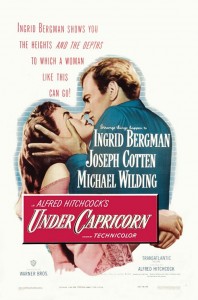
Synopsis:
In the early 19th century, an Irishman (Michael Wilding) moves to Australia, where he befriends an ex-convict (Joseph Cotten) whose fragile wife (Ingrid Bergman) has become a reclusive alcoholic cared for by her domineering housemaid (Margaret Leighton). When Wilding attempts to help cure Bergman of her neuroses (falling in love with her in the process), he quickly learns more about her unconventional marriage to Cotten, and the tragedy that sent them to Australia.
|
|
Genres, Themes, Actors, and Directors:
- Ex-Cons
- Historical Drama
- Hitchcock Films
- Immigrants and Immigration
- Ingrid Bergman Films
- Joseph Cotten Films
- Love Triangle
- Marital Problems
Review:
Based on a novel by Australian author Helen Simpson, this historical melodrama was Alfred Hitchcock’s second film in Technicolor, and features several instances of the “long take” he so infamously utilized in Rope (1948) the previous year. It performed poorly at the box office, and is generally viewed as one of Hitchcock’s lesser efforts — primarily because it’s more of a domestic melodrama than a thriller, and moves at a much more leisurely, literary pace. It’s often compared (unfavorably) with Hitchcock’s Oscar-winning American debut film, Rebecca (1940), which featured a similarly overbearing housemaid intent on meddling in the private life of her mistress — though in this case, Margaret Leighton’s Millie is (unfortunately) not given nearly as much screentime as Judith Anderson’s Miss Danvers in Rebecca. Indeed, given what a pivotal role Leighton ends up playing in the denouement of Under Capricorn, it’s especially frustrating to see how underdeveloped her character is; she’s given one excellent, intriguing monologue mid-way through the movie, but otherwise simply comes and goes until the film’s final scenes bring her back with a wallop.
At the film’s heart, however, is Ingrid Bergman, giving a typically mesmerizing performance as a conflicted woman driven to drink and seclusion by both her tragic past and her challenging present circumstances. Also effective is Michael Wilding (best known as Elizabeth Taylor’s second husband — though, interestingly, he later married Leighton), as the do-gooding man determined to help rescue Bergman from her self-imposed exile. Meanwhile, Jack Cardiff’s luminous cinematography bathes the entire film in gorgeous, painterly hues. It’s all the more disappointing, then, that the movie itself ultimately doesn’t move in a very interesting direction: we wouldn’t mind learning a lot more about life during this very specific time in Australia’s history (when it was still largely comprised of ex-convicts), but instead must be content with the melodramatic tensions between Cotten (giving an overly restrained performance), Bergman, Wilding, and Leighton. It’s far from boring, and beautifully shot, but is really only must-see for Hitchcock completists.
Redeeming Qualities and Moments:
- Ingrid Bergman as Lady Henrietta
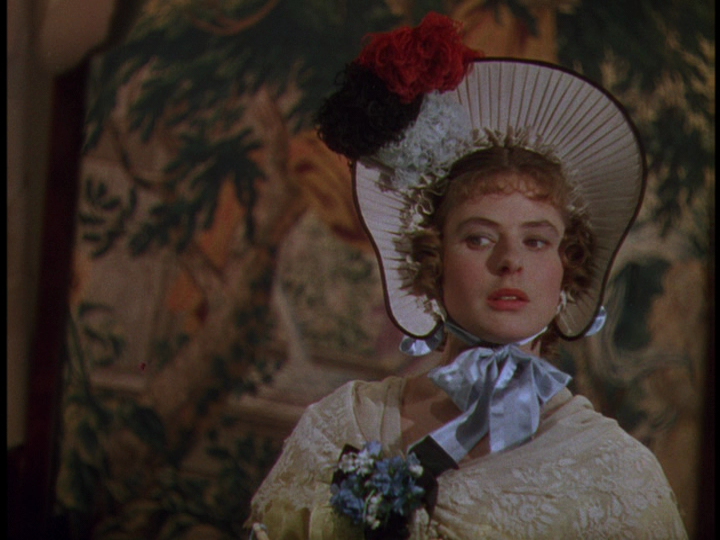
- Michael Wilding as Charles
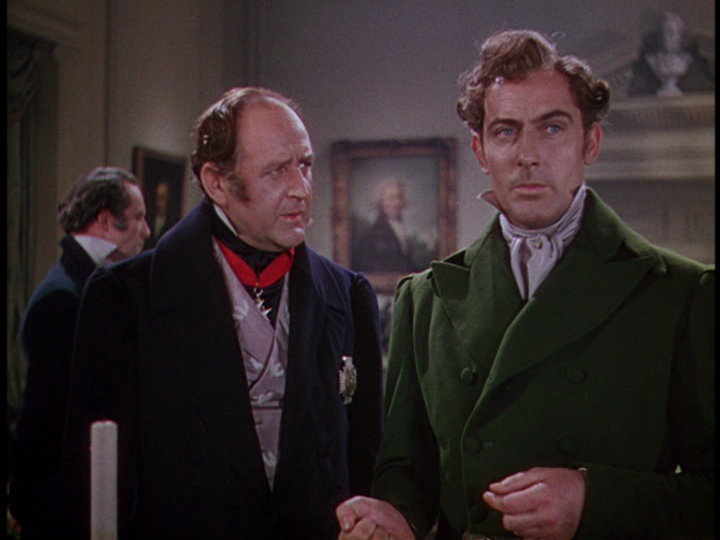
- Margaret Leighton as Millie
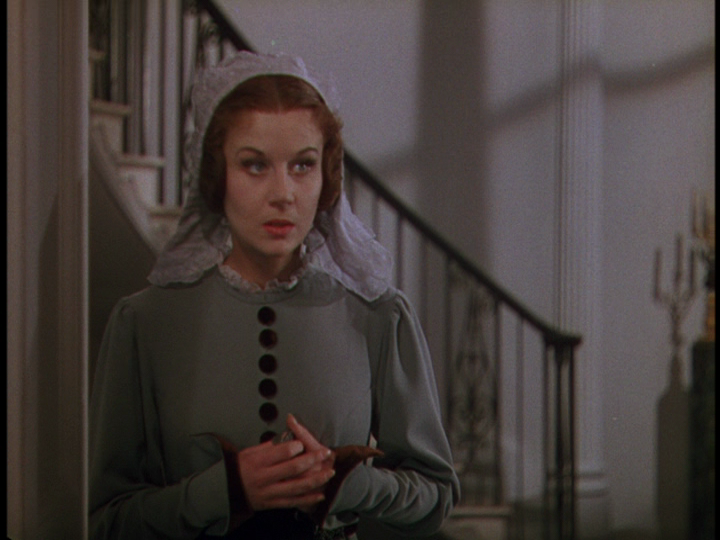
- Jack Cardiff’s cinematography
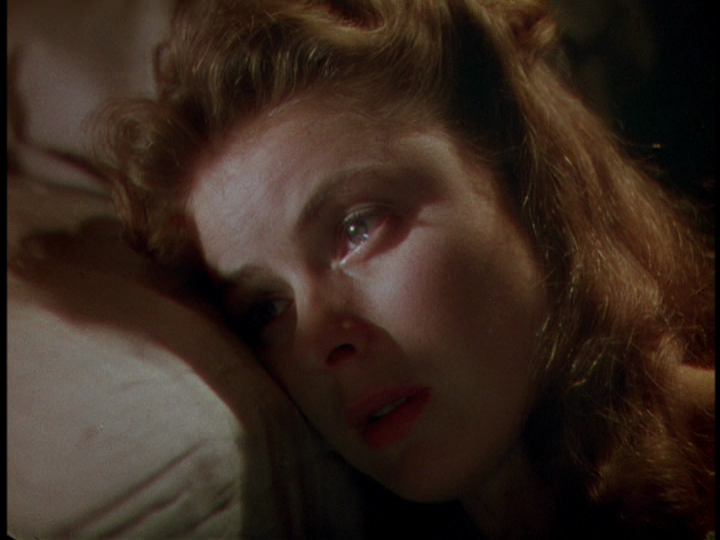
Must See?
No, though it’s certainly recommended to Hitchcock enthusiasts and/or fans of Ingrid Bergman. In 1958, voted by the Cahiers du Cinema as one of the ten greatest films of all time. Available for free viewing on the Internet Archive.
Links:
|





One thought on “Under Capricorn (1949)”
Not a must.
And what were the French thinking: one of the greatest films of all time??????????
It *is* gorgeously shot by Jack Cardiff. And that is its greatest asset; it’s as stunning to behold as his work on ‘Black Narcissus’ and ‘The Red Shoes’.
As well, the first half builds very nicely indeed (and, for that, Hitchcock and all involved are to be applauded). It’s the second half that is the film’s undoing – it becomes…not muddled exactly…just not very compelling. And that’s the fault of the script. It goes into automatic pilot.
Hitchcock seems to have wanted to create a film that fit in with certain ‘demands’ of the time, in terms of ‘a woman’s picture’: not such a film on Hitchcock’s terms (i.e., ‘Rebecca’) but something calculated to be more on average commercial terms – much less psychological and more melodramatic. It seems to have tried to deliver on that level and apparently failed at the box office.
The cast is fine – until they’re left somewhat floundering from midway with limp mechanics. Poor Leighton (generally a fine actress) does what she can with a character written in too obvious a manner.
I saw this once when I was quite a young ff. Apparently I saw a cut version. The version I’ve just seen at YouTube is a slightly longer European print that restores some of what was cut from the American version. Not that it matters much.